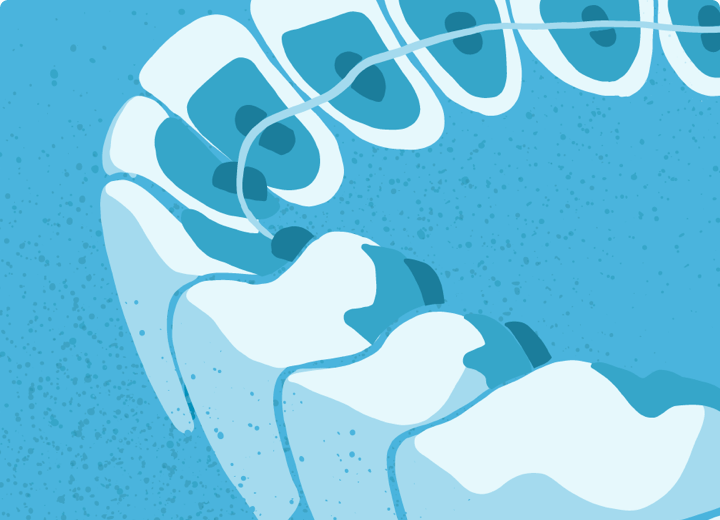Lingual brace FAQs
If you’re thinking about getting lingual braces you probably have a lot of questions. Luckily, as specialist orthodontists and lingual-enthusiasts, we have the answers. We’re continually updating our frequently asked questions, but if you can’t find the information you need, please get in touch.
How long will I need to wear lingual braces for?
The length of your orthodontic treatment will vary based on your individual needs. In most cases treatment takes 12-18 months, but it could take as little as six months if you’re only looking to straighten mild crowding. Your orthodontist should be able to give you an accurate estimate of how long your treatment will take during your initial consultation.
How often will I need to see my orthodontist?
You’ll need to see your orthodontist regularly throughout your lingual brace treatment – roughly every 6-8 weeks. This is so they can adjust your brace and make sure everything is moving as planned. It also gives you the opportunity to ask any questions.
Are lingual braces available on the NHS?
No. Unfortunately lingual braces are not funded by the NHS. They are only available on a private, self-funded basis. Most orthodontists will be able to offer finance packages though, to help you spread the cost of your treatment.
Does my dentist need to refer me for lingual orthodontic treatment?
No. You don’t need your dentist to refer you for an orthodontic consultation. You can contact your local specialist orthodontist directly to arrange your first appointment.
Why doesn’t every orthodontist offer lingual orthodontics?
Lingual orthodontics is a complex technique that requires special training and equipment. Not every orthodontist will offer every type of brace, which sometimes comes down to personal preference as well as their target audience, for example they may predominantly treat NHS patients.
Can I straighten just my front teeth with lingual braces?
Yes – absolutely. Lingual braces can be used to target small sections including the front six teeth. In these cases treatment will usually be quicker and more affordable.
Will lingual braces give me a lisp?
You may experience a lisp for a few days after having your brace fitted while your mouth adjusts. The more you practice talking, the quicker it will disappear.
Are lingual braces uncomfortable?
Lingual braces can be uncomfortable at first, but you’ll quickly adjust and there are a few measures you can take to help prevent any discomfort. If your brace is irritating your tongue you can put a small piece of orthodontic wax over the offending bracket. A painkiller such as paracetamol can help to alleviate any achiness and gargling salt water will also help to soothe your mouth.
What foods should I avoid while wearing lingual braces?
As a general rule, you should avoid eating anything hard, chewy or sticky. Top offenders include crusty bread, toffee and chewing gum. Sticky foods will cling to your brace and be difficult to remove; while hard, chewy foods can remove brackets, resulting in a special trip to see your orthodontist. You’ll actually find that you can still enjoy most foods; you’ll just need to cut them up into smaller pieces before enjoying.
Why are lingual braces more expensive than traditional braces?
Lingual braces can cost more than clear aligners or traditional fixed braces. This reflects the cost of the brace itself, particularly if it has been custom-made just for you. It also reflects the training and expertise of your orthodontist and the length of your appointments. Because the brackets are on the inside of your teeth, they’re slightly less accessible and therefore adjustments can take slightly longer.


